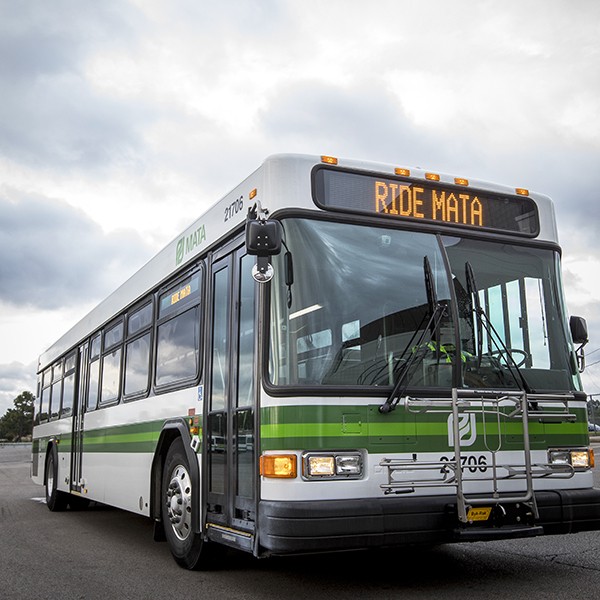 Justin Fox Burks
Justin Fox Burks
The county is looking to make its first ever investment in public transit, beginning this fiscal year.
Five Shelby County Commissioners pushed Tuesday to amend Shelby County Mayor Lee Harris’ budget proposal to include funding for the Memphis Area Transit Authority (MATA).
The amendment, sponsored by Commissioners Tami Sawyer, Van Turner, Eddie Jones, Edmund Ford Jr., and Mickell M. Lowery, would allow for $2.5 million in county funds to be allocated to MATA “to support improvement of transportation services provided by MATA.”
The funding is contingent on MATA providing two board seats to the board of commissioners and final approval by the commission.
Harris has previously said that he would be presenting a proposal for MATA funding to the commission in September.
But, commissioners like Sawyer said it’s important to begin funding MATA now. The $2.5 million of proposed funding became available after it was left over from $5 million set aside for the county election commission, according to Sawyer.
Sawyer said Tuesday that “this isn’t a formula for how we continue to fund MATA, but it’s a start.”
“In conversations that many of us have had with representatives of MATA and representatives of the community and the mayor’s administration themselves, we know that this is something that people want to see now,” Sawyer said. “But also we have to figure out one, what can we really do in this amount of time? And two, once the county gets into the transportation game, what ability will we have to participate in the oversight?”
[pullquote-1]
Nicole Lacey, chief communications officer for MATA, said that “yesterday’s action by the Shelby County Commission is a positive step in the right direction for Shelby County Government to begin investing in public transit.
The Memphis Area Transit Authority executive team looks forward to continued dialogue with the Shelby County Commission and Shelby County Mayor Lee Harris regarding the possibilities of funding that could begin this fiscal year.”
In April, Memphis Mayor Jim Strickland included in his proposed 2020 budget an additional $2.5 million in funding for MATA for a total of $29,170,000. The mayor said then that would bring the total funding increases for MATA to $5 million since he took office in 2016.
In the past, MATA officials have said that in order to provide a more frequent, reliable, and robust system, the agency needs an additional $30 million a year.
With the additional funding, Lacey said MATA will pursue the recommendations laid out in the Transit Vision Plan — a piece of the Memphis 3.0 plan.
Lacey said the plan includes more frequency, weekend and evening service, and new and redesigned bus routes that help people connect across the city and county.
Members of the Memphis Bus Riders Union (MBRU) said the city’s current proposal for MATA funding might not be enough to pay for new buses, routes, or service hours.
Justin Davis of the MBRU said the city and county governments can’t keep putting off a large investment in transit “if we want to increase ridership and improve MATA’s public perception.”
“If MATA does get that new funding for fiscal year 2020, we want to see it going to operations first: more bus routes, more frequent service, and more service on nights and weekends,” Davis said. “But if MATA doesn’t get a significant investment, we’re worried that they will be pushed to cut service again to balance their budget — just like what happened last fall.”